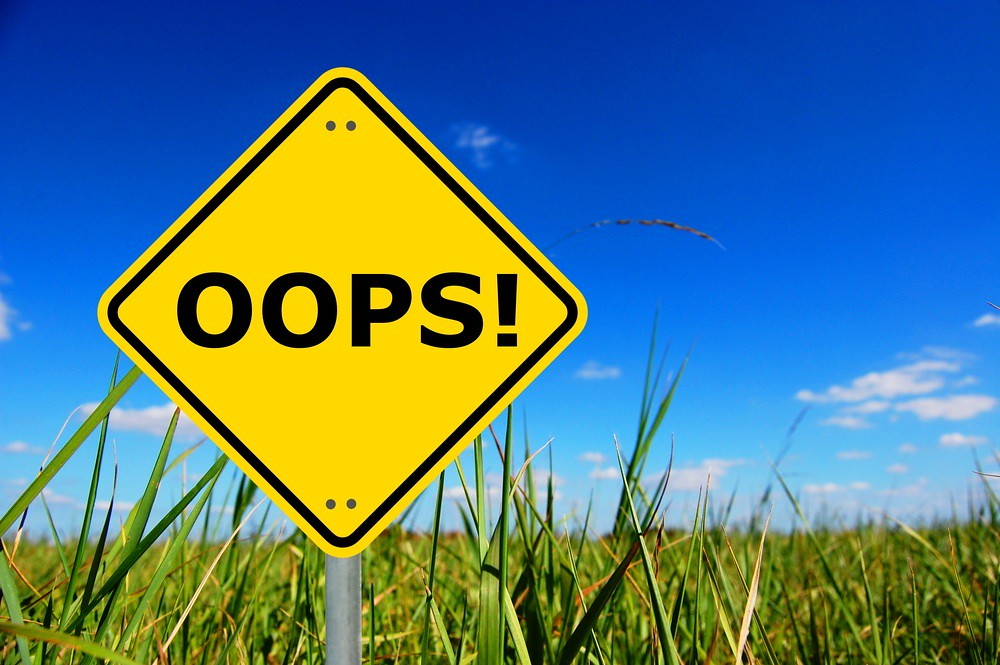 “Errors are inevitable, but suffering as a result of them is optional.”
“Errors are inevitable, but suffering as a result of them is optional.”
–The Musician’s Way, p. 193
Of all the skills I teach to performers, one of the most challenging ones for them to master involves the handling of on-stage mistakes.
All too often, errors churn up persistent, toxic emotions.
Some musicians, for instance, will agonize over slips: a single misshapen note can set off a torrent of aggravation.
In contrast, we veterans stay in the moment when glitches occur – we keep the music flowing and the magic happening. Then, after a show, we ferret out the causes of any missteps, lifting our artistry in the process.
To help rising performers become fluent error-handlers, I emphasize the following 3 concepts.
The Meaning in Mistakes:
1. Errors Are Not Failures
An on-stage mistake resembles a stutter; it doesn’t bar listeners from feeling the larger phrase.
When we miss a note, if we keep up the musical intensity, listeners stay immersed in the music and don’t notice the flub. Even when bigger mishaps occur – say, a singer misses an entrance – we can still keep the mood alive.
Conversely, failures result in lasting loss. A driver who causes a fatal car crash, let’s say, fails as a driver and citizen.
In sum, “An on-stage error can’t become a failure unless a musician turns it into one.” (The Musician’s Way, p. 192)
“An on-stage error can’t become a failure unless a musician turns it into one.”
2. Errors Are Not Shameful
Musicians who confuse errors with failures often harbor shame too. Not only do they view slips as disasters but also conclude that their missed notes prove that they’re untalented.

It’s human nature for us to feel guilty, for example, if we accidentally damage a friend’s instrument. People who feel shame, though, believe that their mistakes indicate that they are inferior.
In truth, every musician makes errors on stage (I certainly commit my share).
As we build up our abilities, we make fewer and smaller errors, and we mask them more gracefully. Nonetheless, our errors alert us to things we need to learn, so, if we treat them positively, they aid our development.
“Errors alert us to things we need to learn, so, if we treat them positively, they aid our development.”
3. Errors Are Information
When we rid ourselves of any negative emotional baggage associated with errors, we can then see them for what they are: information. Errors don’t come with emotional strings unless we strap them on.
Memory slip? Enjoy ad-libbing through it, and then explore the possible causes in practice. As you modify your learning habits, your on-stage security will grow.
“Errors don’t come with emotional strings unless we strap them on.”
One of my advantages as a performer isn’t just my years of experience but also that I have no fear of mistakes. I know how to prepare for concerts, and I trust in my ability to deliver moving performances no matter what comes up.
With steady work, any musician can acquire those same skills.
See pages 190-196 of The Musician’s Way for a comprehensive approach to handling performance errors.
Related posts
Countering Perfectionism
The Four Stages of Memorization
The Growth Mindset
Practicing Performance
Solving Problems in Practice
© 2011 Gerald Klickstein
Photo licensed from Shutterstock.

Thanks for this article, I’m often a hypercritical musician. I hold a high standard for myself in performance and really battle being tortured by my mistakes in the days following a less than perfect performance. So you hit the nail on the head when you said, “an on-stage error can’t become a failure unless a musician turns it into one.” I’m really going to try and remember that for a performance I have tomorrow. Thank you!
Thanks for writing about this. I currently sing, play piano, violin, guitar and recorder. I am working on my ‘stage presence’ and found this very useful. I don’t get as ‘sick to my stomache’ as I used too, thank goodness, but I still get a bunch of butterfly’s. 🙂 I’ll be back to read more on your very informative site.
Enjoying my musical journey,
~Piano Lesson Girl,
Dakota